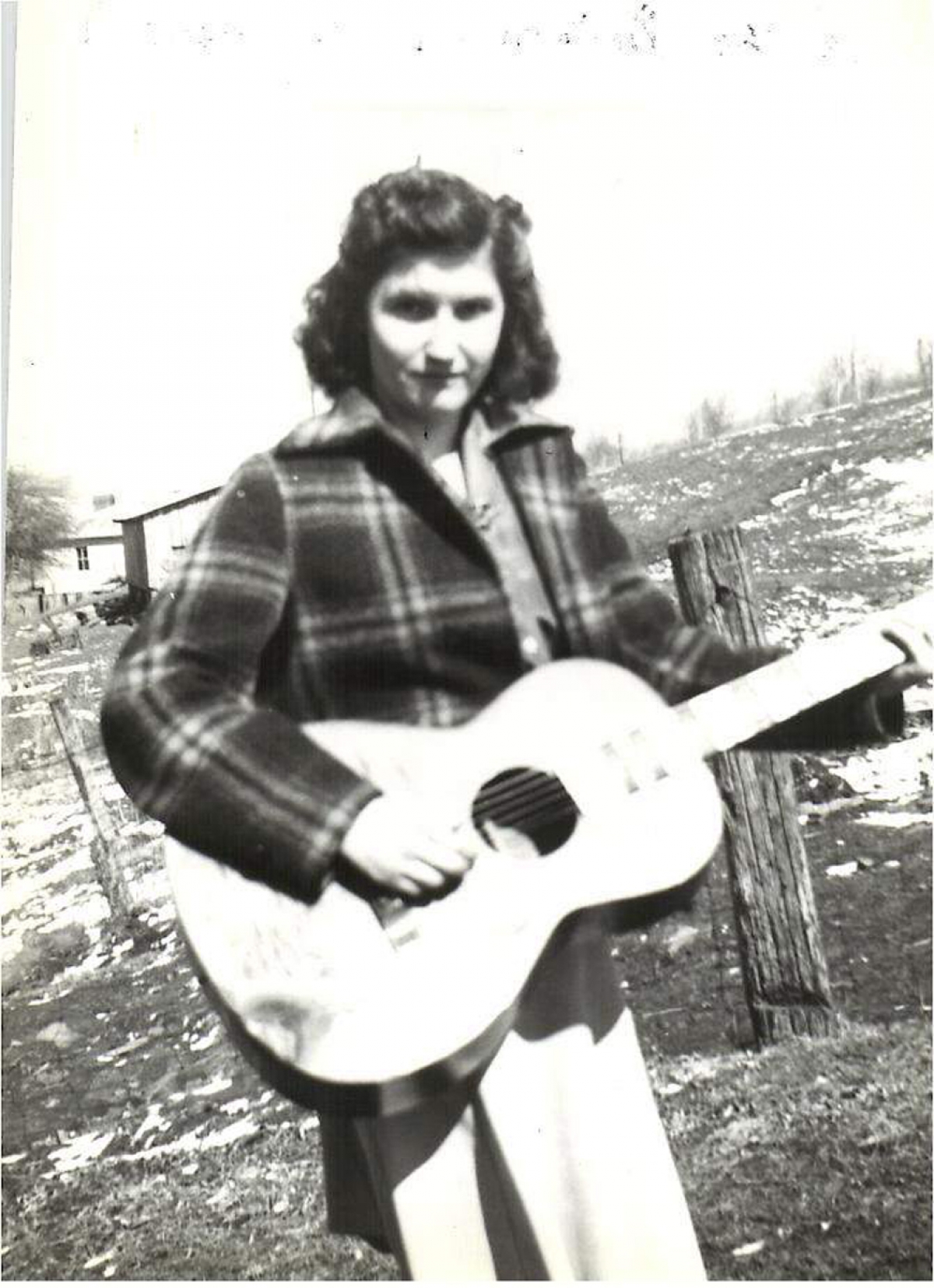Hazel Dickens embodied a fearless honesty expressed in her singing, songwriting, and support of coal miners and women. She never lost her West Virginia mountain vocal style despite her success as an artist and feminist icon, half century living in the Baltimore-Washington DC area, or performances across the USA. She passed away in Washington, DC, her long-time home, in April 2011.
Hazel absorbed music from neighbors, including her father Hilary who played banjo. She left her home for the rough Appalachian emigre part of Baltimore, where five of her siblings had moved Arnold, Guy, John, Robert and Velvie. There she began playing bass in bluegrass bands and fending off the advances of bandmates and other men at their bar gigs. One of the first groups with Walter Hensley and her brother Arnold. Also regular jamming at her brother, Guy’s, house.
Her life began to change when she met Mike Seeger of the New Lost City Ramblers. Seeger introduced Hazel not only to the folk music scene but to Alice Gerrard. The two blended beautifully musically, and they began a then unheard of female bluegrass duo. Beginning in 1965, they recorded, with noted male players backing them, two seminal albums for Folkways, dreaming they could buy cars with the money that did not come in, with two more released by Rounder during the early 1970s. A fifth album, compiled from practice tapes, appeared in 2018. They also recorded with the mixed gender group, the Strange Creek Singers.
During this time, Hazel’s songwriting began to develop alongside her sense of social justice. Gaining courage to sing her new material in jam sessions, her first expression of concern for women’s issues came with “Don’t Put Her Down, You Put Her There.” As a solo artist on Rounder Records for the last thirty-some years of her life, she recorded a series of songs with female and worker empowerment themes (“They’ll Never Keep Us Down,” “Are They Gonna Make Us Outlaws Again”), along with touching reflections on childhood (“Mama’s Hands,” “A Few Old Memories”), a salute to her home state (“West Virginia, My Home,” “Hills of Home”), and select covers like Billy Edd Wheeler’s “Coal Tattoo.”
She performed with a changing set of back-up musicians, using members of the Johnson Mountain Boys as much as possible. Her distinctive style of singing embodied the soul of each song, never “singing through a song,” as she put it. Recognition came in the form of the movies Matewan and Harlan County U.S.A. She was the subject of Mimi Pickering’s Appalshop film It’s Hard to Tell the Singer from the Song. The University of Illinois press in 2008 published Working Girl Blues: The Life and Music of Hazel Dickens, co-written by Hazel and historian Bill Malone. In 2001, she received the National Heritage Fellowship from the National Endowment for the Arts. In 2017 Hazel and Alice were inducted into the Bluegrass Music Hall of Fame, fifteen years after they received the Folk Alliance Lifetime Achievement Award.
